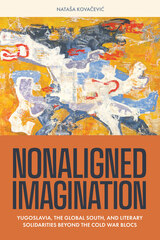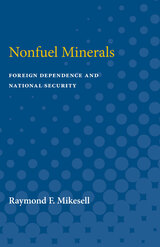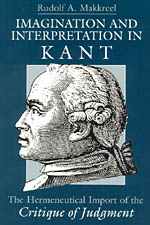
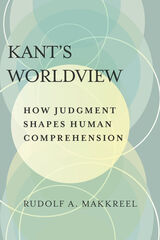
To comprehend, according to Kant, is to possess sufficient insight into situations so as to also achieve some purpose. This requires that reason be applied with the discernment that reflective judgment makes possible. Comprehension, practical as well as theoretical, can fill in Kant’s world concept and his sublime evocation of a Weltanschauung with a more down-to-earth worldview.
Scholars have recently stressed Kant’s impure ethics, his nonideal politics, and his pragmatism. Makkreel complements these efforts by using Kant’s ethical, sociopolitical, religious, and anthropological writings to provide a more encompassing account of the role of human beings in the world. The result is a major contribution to our understanding of Kant and the history of European philosophy.

The Limits of Scientific Reasoning was first published in 1984. Minnesota Archive Editions uses digital technology to make long-unavailable books once again accessible, and are published unaltered from the original University of Minnesota Press editions.
The study of human judgment and its limitations is essential to an understanding of the processes involved in the acquisition of scientific knowledge. With that end in mind, David Faust has made the first comprehensive attempt to apply recent research on human judgment to the practice of science. Drawing upon the findings of cognitive psychology, Faust maintains that human judgment is far more limited than we have tended to believe and that all individuals - scientists included—have a surprisingly restricted capacity to interpret complex information. Faust's thesis implies that scientists do not perform reasoning tasks, such as theory evaluation, as well as we assume they do, and that there are many judgments the scientist is expected to perform but cannot because of restrictions in cognitive capacity.
"This is a very well-written, timely, and important book. It documents and clarifies, in a very scholarly fashion, what sociologists and psychologists of science have been flirting with for several decades—namely, inherent limitations of scientific judgment," –Michael Mahoney, Pennsylvania State University
David Faust is director of psychology at Rhode Island Hospital and a faculty member of the Brown University Medical School. He is co-author of Teaching Moral Reasoning: Theory and Practice.
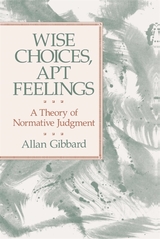
This book examines some of the deepest questions in philosophy: What is involved in judging a belief, action, or feeling to be rational? What place does morality have in the kind of life it makes most sense to lead? How are we to understand claims to objectivity in moral judgments and in judgments of rationality? When we find ourselves in fundamental disagreement with whole communities, how can we understand our disagreement and cope with it?
To shed light on such issues, Allan Gibbard develops what he calls a “norm-expressivistic analysis” of rationality. He refines this analysis by drawing on evolutionary theory and experimental psychology, as well as on more traditional moral and political philosophy. What emerges is an interpretation of human normative life, with its quandaries and disputes over what is rational and irrational, morally right and morally wrong. Judgments of what it makes sense to do, to think, and to feel, Gibbard argues, are central to shaping the way we live our lives.
Gibbard does not hesitate to take up a wide variety of possible difficulties for his analysis. This sensitivity to the true complexity of the subject matter gives his treatment a special richness and depth. The fundamental importance of the issues he addresses and the freshness and suggestiveness of the account he puts forward, along with his illuminating treatment of aspects of sociobiology theory, will ensure this book a warm reception from philosophers, social scientists, and others with a serious interest in the nature of human thought and action.
READERS
Browse our collection.
PUBLISHERS
See BiblioVault's publisher services.
STUDENT SERVICES
Files for college accessibility offices.
UChicago Accessibility Resources
home | accessibility | search | about | contact us
BiblioVault ® 2001 - 2025
The University of Chicago Press





